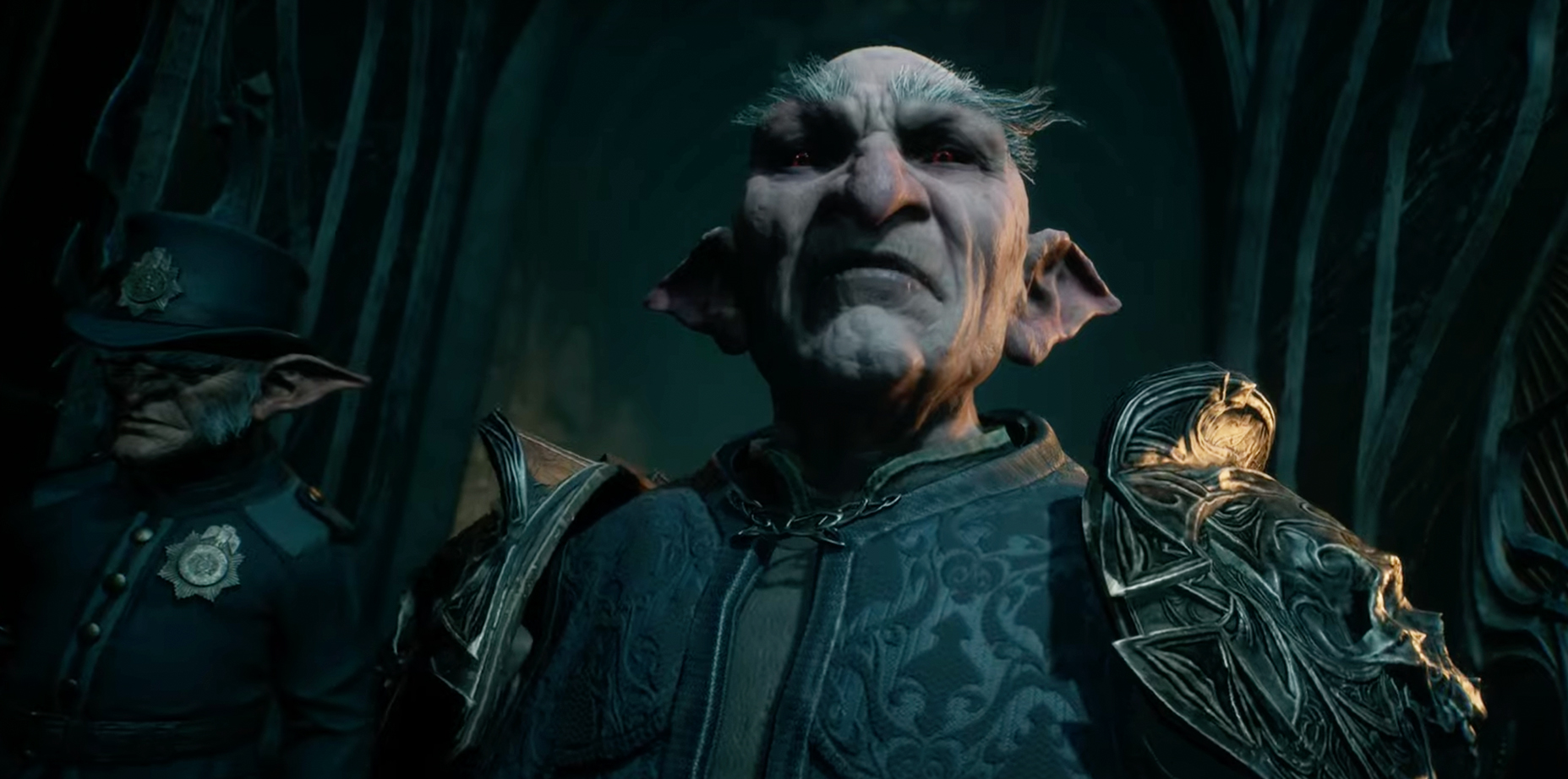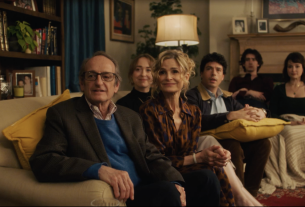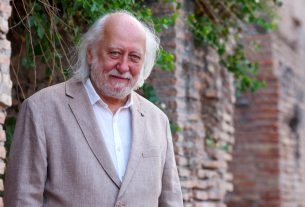(JTA) — When people enter the world of “Hogwarts Legacy,” the blockbuster video game that was officially released on Friday, they will find themselves immersed in the fictional universe of “Harry Potter” — and face-to-face with an alleged antisemitic caricature.
The narrative of the game centers on a goblin rebellion in the 1890s, about a century before the fantasy books take place. Some who have had an early look at the game have echoed longstanding concerns that the creatures’ prominent hook noses, and their role in the “Harry Potter” universe running the wizard bank, Gringotts, teeter on the edge of an antisemitic stereotype that Jews control the world’s banks.
Others have taken issue with “Harry Potter” author J.K. Rowling’s views on transgender people, which LGBTQ rights groups have called transphobic.
The criticism does not appear to have significantly impeded sales of “Hogwarts Legacy,” which has become the best-selling game on Steam, the world’s most popular vendor for computer games. On Twitch, the popular video-game streaming platform, the game reached 1.2 million concurrent viewers at its peak, the most views ever achieved for a single-player game.
While there have been Harry Potter games in the past, this is the first major studio video game from Avalanche Software, a subsidiary of Warner Bros. Games. It provides an immersive experience, creating hype among fans who are hungry for a wizard simulator that makes the player feel like they live in that world. And it’s also received positive reviews, sitting at 84% on Metacritic, a review aggregate site.
It lands several years after the depiction of goblins in the extended series of Harry Potter books and movies elicited criticism. Comedian Pete Davidson criticized J.K. Rowling, the books’ author, on “Saturday Night Live” in 2020 for creating a world in which “little giant-nosed Jew goblins” control the banks. In a podcast episode in 2021, comedian Jon Stewart said, “You can ride dragons, and you’ve got a pet owl, and who should run the banks? Jews.”
Those accusations have resurfaced in the days leading up to the video game’s release. Jack Doyle, a writer for The Mary Sue, a publication that describes itself as “the geek girl’s guide to the universe,” wrote that the video game “revives the antisemitic trope.” Doyle added that “the game seems to be of the opinion that the ‘moral’ choice is to crush the [goblin] rebellions, thereby returning goblins to subjugation.”
The website for “Hogwarts Legacy” says that “J.K. Rowling was not involved in the creation of the game,” though developers “collaborated closely with her team on all aspects of the game.” Rowling herself does not appear to have directly addressed the antisemitism allegations.
Rowling does have defenders in the Jewish community — even as some of them acknowledge antisemitic undertones to the goblins. She has repeatedly condemned antisemitism publicly, particularly among supporters of former British Labour Party leader Jeremy Corbyn. Following Stewart’s comments, the U.K.’s Campaign Against Antisemitism said in a statement that “the portrayal of the goblins in the Harry Potter series is of a piece with their portrayal in Western literature as a whole” and “is a testament more to centuries of Christendom’s antisemitism than it is to malice by contemporary artists. So it is with JK Rowling, who has proven herself over recent years to be a tireless defender of the Jewish community.”
Travis Northup, who wrote a glowing review of the game for IGN, a popular video game journalism website, told the Jewish Telegraphic Agency that he did not think the game’s premise echoed an antisemitic conspiracy theory.
“The story does not depict a cabal of bank-controlling goblins trying to take over the world,” Northup wrote in a Twitter direct message. “It’s about one particular goblin rebelling against the Wizarding World’s insistence on keeping magic out of the hands of their kind.”
Northup added, though, “I certainly won’t deny that the Wizarding World’s depiction of goblins in general has always been a bit questionable — even before this game.” Northrup added that whether concerns over that “questionable” portrayal should have influenced game developers is “a tough question.”
“I imagine that Avalanche had to work within established Potter lore, which includes the goblin rebellions,” he said. “I don’t know enough about the situation there or the creative freedoms they were allowed to take.”
Northup noted that the games’ writers “go out of their way to make you interact with good goblins who don’t share the evil goblin’s ideals.” He also said he thought the developers included a trans woman in the game to “almost certainly distance themselves from Rowling’s views” on transgender people.
“It’s a world a lot of people love and I think the developers did their best to make it better than it was before Hogwarts Legacy, which is admirable,” Northup wrote.
Yonah Gerber, a video game archivist, had a different take, noting other details of the game that they said verge on antisemitism. The game includes a description of a horn that resembles a shofar, which “goblins [used] during the 1612 Goblin Rebellion to rally troops and generally annoy witches and wizards,” Gerber said.
“If this was the first time a Rowling property has been antisemitic, that’s a woopsie. But it’s not,” Gerber tweeted. “Even if these are coincidences, had the development team made a point to avoid antisemitic caricatures and educated themselves on that history, this wouldn’t have happened. They chose not to care. And that’s not much better, really.”
Gerber, who is Jewish and nonbinary, told the New York Jewish that “it sucks” that so many people are playing the game.
“I can’t do anything about the fact that people care more about entertainment than actual people harmed by said entertainment,” Gerber said.




